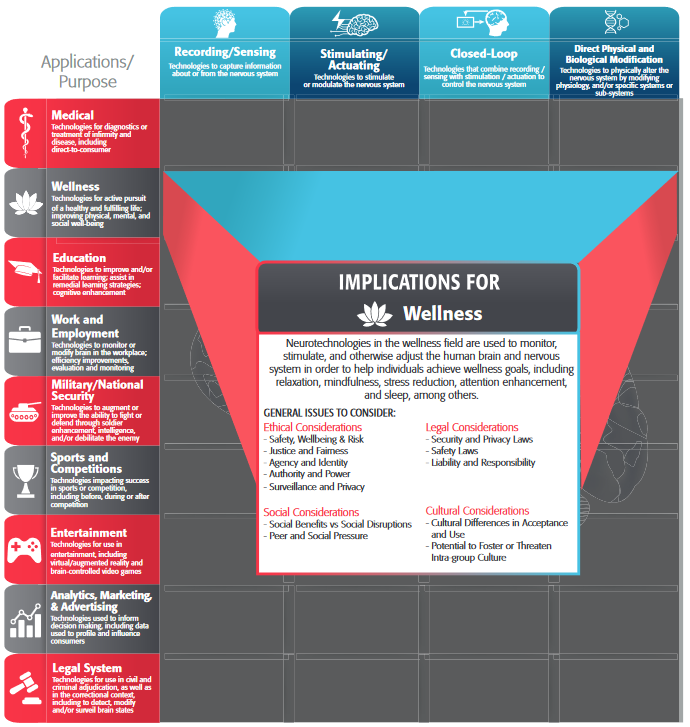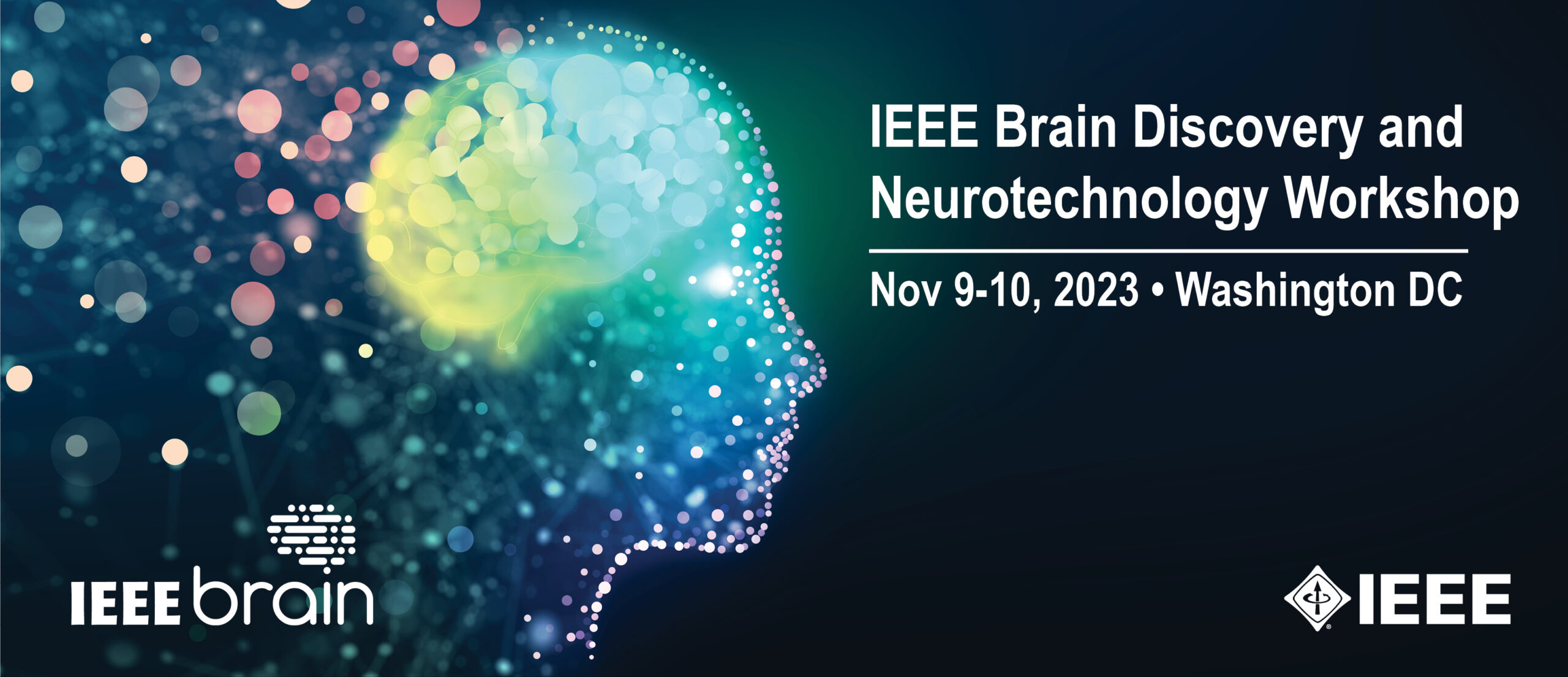
IEEE Brain Discovery and Neurotechnology Workshop
Workshop Overview
Advances in understanding the brain both in healthy individuals and those suffering from a disorder have led to groundbreaking discoveries and engineering solutions. Together these advances hold the potential to ameliorate a wide range of neurological disorders and diseases and improve quality of life for those with neurological conditions. However, there are still many unanswered questions including the underlying causes of disease and disorders and the relationship of brain function to behavior. Development and deployment of effective neurotechnology and means of studying the brain through neuroimaging techniques and machine learning will require an integrated approach as well as close collaboration among the neuroengineering community, neuroscientists, and clinical practitioners. The goal of this workshop is to bring together researchers and practitioners across academia, industry, and the clinical profession to highlight innovative neurotechnology and brain research methods, emphasizing their potential to improve understanding of the brain and address a wide range of disorders to improve the human condition.
This workshop is a satellite event to the 2023 Society for Neuroscience Conference and will be held at the Science and Engineering Hall (800 22nd St. NW), George Washington University, Washington, DC. The program will consist of three tracks covering emerging neurotechnologies, machine learning for brain discovery, and clinical applications and impact. Each track will include a keynote speaker and invited speakers who will discuss their work in the context of larger issues in each of these topic areas, and also participate in a panel following the invited talks. The program will also include a panel on the ethical implications of neurotechnology, as well as a panel by sponsoring agencies. Exhibits from the neurotech industry will be on display as well as poster presentations.
IEEE Brain 2023 Workshop Final Program
Thank you to our Workshop Sponsors!
Silver Sponsors:
Delsys
g.tec
Exhibitor:
Mentalab
Program Committee
General Chairs
Ramana Vinjamuri, University of Maryland, Baltimore County, USA
Tülay Adali, University of Maryland, Baltimore County, USA
Program Chairs
Selin Aviyente, Michigan State University, USA
Machine Learning for Brain Discovery Track
Natalie Mrachacz-Kersting, University of Freiburg, Germany
Clinical Application and Impact Track
Damien Coyle, University of Ulster, UK
Emerging Neurotechnologies Track
Rikky Muller, University of California, Berkeley, USA
Poster Presentations and Awards
Local Chair
Lijie Grace Zhang, George Washington University, USA
Finance Chair
Bruce Allen Hecht, VG2PLAY, USA
Industry Chair
Eric Maass, Six Sigma Experts and Arizona State University, USA
Communications
Cynthia Weber, IEEE Brain
Local Organization
Grace Rigdon, GCR Consulting, USA
Advisory Board
Jack Gallant, UC Berkeley, USA
Gert Cauwenberghs, UC San Diego, USA
Metin Akay, University of Houston, USA
May Wang, Georgia Tech, USA
IEEE Brain Discovery and Neurotechnology Workshop Tracks
Submissions for poster presentations in each track are invited. More information and the link to the submission form can be found under the Call for Posters tab. The deadline is October 2, 2023.
Emerging Neurotechnologies
In recent years a range of new neurotechnology innovations have emerged to enable neuroimaging and neural recording and interfacing at multiple scales in variety of settings—in the lab, in the clinic, and in the wild—including low-cost wearable electroencephalography (EEG), ultra-high density EEG, stereoelectroencephalography (sEEG), advanced functional near infrared spectrography (fNIRS) and functional magnetic resonance imaging (fMRI), functional ultrasound imaging (fUS), optically pumped magnetometer magnetoencephalography (OPM-MEG), neural lace, neural dust, stent-electrode recording arrays (stentrodes) and endovascular recording techniques, multielectrode arrays, elrctocorticographic (ECoG) arrays, and optogenetics among others. This session aims to present examples of the latest scientific studies involving a selection of these approaches and host a panel discussion about what is feasible within the next 5-10 years with these latest advances in neurotech and the major opportunities and challenges in deploying these technologies.
Machine Learning for Brain Discovery
Advances in noninvasive neuroimaging technology such as magnetic resonance imaging and magnetoencephalography, have enabled the study of both the healthy and disordered human brain with increasing temporal and spatial resolution. Neuroimaging data poses some unique challenges such as low signal-to-noise ratio, small sample size, and high dimensionality. Recent methodological advances in machine learning have enabled the analysis of brain data across multiple scales and modalities. Current challenges and problems of interest include development of interpretable deep learning architectures for learning from neural data; network neuroscience for functional/structural connectivity network analysis, i.e., brain connectomics, across time and subjects; variability of brain networks across subjects; multimodal data fusion; classification and prediction of health status or specific outcomes through biomarker identification. This session aims to present examples of the latest research in machine learning for brain data involving a selection of these approaches and host a panel discussion on challenges and opportunities, including the transition to clinical practice as well as to more applied domains thinking of applications such as preventive predictive actions.
Clinical Applications and Impact
The first demonstration of a technology for a clinical application with impact was deep brain stimulation for Parkinson’s disease. Interestingly, it took less than 25 years for this technology to become established with more than 80,000 patients having received an implant by 2010. Technologies that restore, replace, or enhance human nervous system function are emerging fast but few are used in daily clinical practice or at home. In this track, we will be presenting some of the most promising technologies that have broad clinical application prospects and discuss their remaining important challenges in the panel to follow. These include optogenetics-based therapies, where recent advances in optogenetic real-time monitoring and therapeutic interventions have opened up the possibility for providing a complementary treatment following brain injury; neuroprosthetics for the restoration of vision, hearing, or motor function; as well as neuromodulation devices such as brain-computer-interfaces.
IEEE Brain Discovery and Neurotechnology Workshop
Science and Engineering Hall (800 22nd St. NW), George Washington University, Washington, DC
View IEEE Brain 2023 Workshop Full Program
Program Overview
Day 1: Thursday, Nov 9, 9am – 7:00pm EST
9:00 Welcome and Opening Remarks
Lijie Grace Zhang, Local Chair, George Washington University
Tülay Adali, IEEE Brain Chair and General Chair, University of Maryland, BC
Ramana Vinjamuri, General Chair, University of Maryland, BC
Session 1: Emerging Neurotechnologies
9:10 Keynote: Tim Denison, Oxford, UK
10:00 Dean J. Krusienski, Virginia Commonwealth University, USA
10:20 Claire Rabut, Caltech, USA
10:40 Coffee Break
11:00 Alexander von Lühmann, Technische Universität Berlin, Germany
11:20 Mahsa Shoaran, EPFL, Switzerland
11:40 Emerging Neurotechnologies Panel Discussion
12:30 Lunch Break (on your own)
2:00 Afternoon Remarks
John Lach, Dean, School of Engineering and Applied Science, George Washington University
Session 2: Machine Learning for Brain Discovery
2:10 Keynote: Dani Smith Bassett, University of Pennsylvania, USA
3:00 Richard Betzel, Indiana University, USA
3:20 Dominique Duncan, University of Southern California, USA
3:40 Coffee Break
4:00 Archana Venkataraman, Boston University, USA
4:20 Behtash Babadi, University of Maryland, College Park, USA
4:40 Machine Learning for Brain Discovery Panel Discussion
5:30 Light Reception, Exhibits
5:45 IEEE Brain Neuroethics Panel
Chair: Laura Cabrera, Pennsylvania State University, USA; IEEE Brain Neuroethics Chair
Jennifer French, Executive Director, Neurotech Network
Armani Porter, Senior Manager, Intellectual Property & Business Development,
Magnus Medical
Martijn De Neeling MD, Amsterdam UMC, Chair IEEE SA WG P2794
Kim Thacker MD, MS, Neurologist and Bio/Neuroethicist
Day 2: Friday, Nov 10, 9am – 6:30pm EST
Session 1: Clinical Applications and Impact
9:00 Keynote: Lee Miller, Northwestern University, USA
10:00 Jennifer Collinger, University of Pittsburgh, USA
10:20 Nick Ramsey, UMC Utrecht, The Netherlands
10:40 Coffee Break
11:00 Aiko Thompson, Medical University of South Carolina, USA
11:20 Monica A. Perez, Northwestern University, USA
11:40 Clinical Applications and Impact Panel Discussion
12:30 Lunch Break (on your own)
2:00 Sponsoring Agencies Panel: Opportunities and Challenges
Chairs: Vince Calhoun, TReNDS Center (Georgia State University, Georgia Tech, Emory), USA; Tülay Adali, IEEE Brain Chair, University of Maryland, BC, USA
Brooks Gross, NINDS
Chou Hung, Neurophysiology of Cognition, US DEVCOM Army Research Laboratory – ARO
Vani Pariyadath, NIH/NIDA
Abera Wouhib, NIH/NIMH
4:00 Full Reception, Posters, Exhibits
6:00 Awards
Keynote Speakers
Tim Denison, Oxford University, UK
Track A: Bioelectronic Chronotherapy: “Circadian-aware” Neurostimulation Platforms for Treating Neurological Disorders
 Dr. Denison holds a joint appointment in Engineering Science and Clinical Neurosciences at Oxford, where he explores the fundamentals of physiologic closed-loop systems in collaboration with the MRC Brain Network Dynamics Unit. Tim also serves as an advisor to several governments and industry boards on the field of translational medical devices; in particular, helping define strategies for mapping scientific discovery to product development roadmaps within the regulatory and economic constraints of medical systems. To support translation to the clinic, he is a director and chief engineer of Amber Therapeutics, which designs and manufactures the Picostim-DyNeuMo research system that is active in multiple first-in-human device trials. Prior to Oxford, Tim was a Technical Fellow at Medtronic PLC and Vice President of Research & Core Technology for the Restorative Therapies Group, where he helped oversee the design of next generation neural interface and algorithm technologies for the treatment of chronic neurological disease. In 2015, he was elected to the College of Fellows for the American Institute of Medical and Biological Engineering (AIMBE). He has an MS and PhD from MIT in electrical engineering, and an AB in Physics and MBA from the University of Chicago.
Dr. Denison holds a joint appointment in Engineering Science and Clinical Neurosciences at Oxford, where he explores the fundamentals of physiologic closed-loop systems in collaboration with the MRC Brain Network Dynamics Unit. Tim also serves as an advisor to several governments and industry boards on the field of translational medical devices; in particular, helping define strategies for mapping scientific discovery to product development roadmaps within the regulatory and economic constraints of medical systems. To support translation to the clinic, he is a director and chief engineer of Amber Therapeutics, which designs and manufactures the Picostim-DyNeuMo research system that is active in multiple first-in-human device trials. Prior to Oxford, Tim was a Technical Fellow at Medtronic PLC and Vice President of Research & Core Technology for the Restorative Therapies Group, where he helped oversee the design of next generation neural interface and algorithm technologies for the treatment of chronic neurological disease. In 2015, he was elected to the College of Fellows for the American Institute of Medical and Biological Engineering (AIMBE). He has an MS and PhD from MIT in electrical engineering, and an AB in Physics and MBA from the University of Chicago.
Dani Smith Bassett, University of Pennsylvania, USA
Track B: Machine Learning for Brain Discovery /
Quantifying Economy in Networks
 Dr. Bassett is the J. Peter Skirkanich Professor at the University of Pennsylvania, with appointments in the Departments of Bioengineering, Electrical & Systems Engineering, Physics & Astronomy, Neurology, and Psychiatry. They are also an external professor of the Santa Fe Institute. Bassett is most well-known for blending neural and systems engineering to identify fundamental mechanisms of cognition and disease in human brain networks. They received a B.S. in physics from Penn State University and a Ph.D. in physics from the University of Cambridge, UK, as a Churchill Scholar, and as an NIH Health Sciences Scholar. Following a postdoctoral position at UC Santa Barbara, Bassett was a Junior Research Fellow at the Sage Center for the Study of the Mind. They have received multiple prestigious awards, including American Psychological Association’s ‘Rising Star’ (2012), Alfred P Sloan Research Fellow (2014), MacArthur Fellow Genius Grant (2014), Early Academic Achievement Award from the IEEE Engineering in Medicine and Biology Society (2015), Office of Naval Research Young Investigator (2015), National Science Foundation CAREER (2016), Popular Science Brilliant 10 (2016), Lagrange Prize in Complex Systems Science (2017), Erdos-Renyi Prize in Network Science (2018), OHBM Young Investigator Award (2020), AIMBE College of Fellows (2020), American Physical Society Fellow (2021), and has been named one of Web of Science’s most Highly Cited Researchers for 3 years running. Bassett is the author of more than 400 peer-reviewed publications, which have garnered over 40,000 citations, as well as numerous book chapters and teaching materials. Bassett’s work has been supported by the National Science Foundation, the National Institutes of Health, the Army Research Office, the Army Research Laboratory, the Office of Naval Research, the Department of Defense, the Alfred P Sloan Foundation, the John D and Catherine T MacArthur Foundation, the Paul Allen Foundation, the ISI Foundation, and the Center for Curiosity. Bassett has recently co-authored Curious Minds: The Power of Connection (MIT Press) with philosopher and twin Perry Zurn.
Dr. Bassett is the J. Peter Skirkanich Professor at the University of Pennsylvania, with appointments in the Departments of Bioengineering, Electrical & Systems Engineering, Physics & Astronomy, Neurology, and Psychiatry. They are also an external professor of the Santa Fe Institute. Bassett is most well-known for blending neural and systems engineering to identify fundamental mechanisms of cognition and disease in human brain networks. They received a B.S. in physics from Penn State University and a Ph.D. in physics from the University of Cambridge, UK, as a Churchill Scholar, and as an NIH Health Sciences Scholar. Following a postdoctoral position at UC Santa Barbara, Bassett was a Junior Research Fellow at the Sage Center for the Study of the Mind. They have received multiple prestigious awards, including American Psychological Association’s ‘Rising Star’ (2012), Alfred P Sloan Research Fellow (2014), MacArthur Fellow Genius Grant (2014), Early Academic Achievement Award from the IEEE Engineering in Medicine and Biology Society (2015), Office of Naval Research Young Investigator (2015), National Science Foundation CAREER (2016), Popular Science Brilliant 10 (2016), Lagrange Prize in Complex Systems Science (2017), Erdos-Renyi Prize in Network Science (2018), OHBM Young Investigator Award (2020), AIMBE College of Fellows (2020), American Physical Society Fellow (2021), and has been named one of Web of Science’s most Highly Cited Researchers for 3 years running. Bassett is the author of more than 400 peer-reviewed publications, which have garnered over 40,000 citations, as well as numerous book chapters and teaching materials. Bassett’s work has been supported by the National Science Foundation, the National Institutes of Health, the Army Research Office, the Army Research Laboratory, the Office of Naval Research, the Department of Defense, the Alfred P Sloan Foundation, the John D and Catherine T MacArthur Foundation, the Paul Allen Foundation, the ISI Foundation, and the Center for Curiosity. Bassett has recently co-authored Curious Minds: The Power of Connection (MIT Press) with philosopher and twin Perry Zurn.
Thomas Stieglitz, University of Freiburg, Germany
Track C: Clinical Applications and Impact /
Longevity and Reliability of Flexible Neural Interfaces
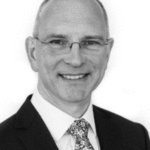 Dr. Stieglitz is a Professor in the Laboratory for Biomedical Microtechnology, Department of Microsystems Engineering – IMTEK at the University of Freiburg in Freiburg, Germany. Stieglitz studied electrical engineering, specializing in biomedical engineering, in Brunswick and Karlsruhe. He received his PhD from Saarland University where he also habilitated in biomedical microsystems engineering in 2002. From 1993 to 2004, he worked at the Fraunhofer Institute for Biomedical Engineering (Institut für BiomedizinischeTechnik, IBMT) in St. Ingbert. He there founded research conducted in the field of biomedical microsystems for neuroprosthetics, which eventually led to the formation of a neuroprosthetics task force. Since 2004, Prof. Stieglitz has held the chair for biomedical microtechnology at the Department of Microsystems Engineering (Institut für Mikrosystemtechnik – IMTEK) at the University of Freiburg. His research priorities include the development of biocompatible construction and interconnection technologies as well as the use of microsystems for neuroprostheses and neuromodulation. He is co-author of about 90 scientific journals, 300 conference papers and co-inventor of 18 patents. He is co-founder and advisor to spin-off companies Cortec, which develops brain-computer-interfaces, and to the business neuroloop, which develops a neurotechnical implants for the therapy of hypertension. Stieglitz serves as a spokesperson for IMBIT // BrainLinks-BrainTools and is an IEEE Fellow.
Dr. Stieglitz is a Professor in the Laboratory for Biomedical Microtechnology, Department of Microsystems Engineering – IMTEK at the University of Freiburg in Freiburg, Germany. Stieglitz studied electrical engineering, specializing in biomedical engineering, in Brunswick and Karlsruhe. He received his PhD from Saarland University where he also habilitated in biomedical microsystems engineering in 2002. From 1993 to 2004, he worked at the Fraunhofer Institute for Biomedical Engineering (Institut für BiomedizinischeTechnik, IBMT) in St. Ingbert. He there founded research conducted in the field of biomedical microsystems for neuroprosthetics, which eventually led to the formation of a neuroprosthetics task force. Since 2004, Prof. Stieglitz has held the chair for biomedical microtechnology at the Department of Microsystems Engineering (Institut für Mikrosystemtechnik – IMTEK) at the University of Freiburg. His research priorities include the development of biocompatible construction and interconnection technologies as well as the use of microsystems for neuroprostheses and neuromodulation. He is co-author of about 90 scientific journals, 300 conference papers and co-inventor of 18 patents. He is co-founder and advisor to spin-off companies Cortec, which develops brain-computer-interfaces, and to the business neuroloop, which develops a neurotechnical implants for the therapy of hypertension. Stieglitz serves as a spokesperson for IMBIT // BrainLinks-BrainTools and is an IEEE Fellow.
Invited Speakers
Track A: Emerging Technologies
Dean J. Krusienski, Virginia Commonwealth University, USA
Decoding of Speech from Intracranial Activity
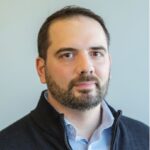 Dr. Krusienski is a Professor and Graduate Program Director of Biomedical Engineering at Virginia Commonwealth University in Richmond, Virginia, where he also directs the Advanced Signal Processing in Engineering and Neuroscience (ASPEN) Laboratory. He has co-authored over 100 peer-reviewed publications related to advancing brain-computer interface and neural signal analysis techniques, which have collectively received over 10,700 citations. Most notably, his work was among the first to demonstrate successful BCI control from electrodes in the hippocampus and speech synthesis using intracranial electrodes. His work has been funded by NSF, NIH, and NASA/NIA, including current projects on intracranial speech decoding and synthesis, closed-loop DBS, music perception, user-state estimation, visual and auditory attention, and virtual reality applications.
Dr. Krusienski is a Professor and Graduate Program Director of Biomedical Engineering at Virginia Commonwealth University in Richmond, Virginia, where he also directs the Advanced Signal Processing in Engineering and Neuroscience (ASPEN) Laboratory. He has co-authored over 100 peer-reviewed publications related to advancing brain-computer interface and neural signal analysis techniques, which have collectively received over 10,700 citations. Most notably, his work was among the first to demonstrate successful BCI control from electrodes in the hippocampus and speech synthesis using intracranial electrodes. His work has been funded by NSF, NIH, and NASA/NIA, including current projects on intracranial speech decoding and synthesis, closed-loop DBS, music perception, user-state estimation, visual and auditory attention, and virtual reality applications.
Claire Rabut, Caltech, USA
Functional Ultrasound Imaging
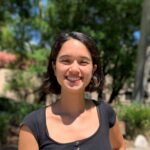 Dr. Rabut obtained her PhD at the University Paris-Sorbonne, France, within the Physics for Medicine Lab where she developed multiple neuroimaging tools based on functional ultrasound imaging in rodents, including introducing the first method for volumetric functional ultrasound to image brain activity on a nearly whole-brain scale. She is currently working as a postdoctoral scholar at Caltech in Pr. Mikhail Shapiro’s Lab where she explores how molecular engineering can expand the field of possibilities of ultrasound technologies for the brain. Her research interests are focused on developing ultrasound technologies to deepen our understanding of fundamental brain circuits and their connection to disease. She is a recipient of the Human Frontier Science Program Fellowship.
Dr. Rabut obtained her PhD at the University Paris-Sorbonne, France, within the Physics for Medicine Lab where she developed multiple neuroimaging tools based on functional ultrasound imaging in rodents, including introducing the first method for volumetric functional ultrasound to image brain activity on a nearly whole-brain scale. She is currently working as a postdoctoral scholar at Caltech in Pr. Mikhail Shapiro’s Lab where she explores how molecular engineering can expand the field of possibilities of ultrasound technologies for the brain. Her research interests are focused on developing ultrasound technologies to deepen our understanding of fundamental brain circuits and their connection to disease. She is a recipient of the Human Frontier Science Program Fellowship.
Alexander von Lühmann, Technische Universität Berlin, Germany
Diffuse Optical Tomography for Neuroscience in the Everyday World: Progress and Challenges
 Dr. von Lühmann is currently head of the “Intelligent Biomedical Sensing” research group at TU Berlin’s Machine Learning department and BIFOLD – the Berlin Institute for the Foundations of Learning and Data. He is also a visiting researcher at the Neurophotonics Center of Boston University (BU NPC) and the Lead Technology Advisor at NIRx Medical Technologies. Before this, he was the Chief Science Officer and R&D Director at NIRx for 2,5 years, a post-doc at Boston University, a visiting researcher at Harvard Medical School, and the Chief Technology Officer at Crely, a healthcare startup based in the US and Singapore. He received his PhD (Dr.-Ing.) with distinction in 2018 from TU Berlin, and his M.Sc. and B.Sc. degrees in Electrical Engineering from Karlsruhe Institute of Technology in 2014/11.
Dr. von Lühmann is currently head of the “Intelligent Biomedical Sensing” research group at TU Berlin’s Machine Learning department and BIFOLD – the Berlin Institute for the Foundations of Learning and Data. He is also a visiting researcher at the Neurophotonics Center of Boston University (BU NPC) and the Lead Technology Advisor at NIRx Medical Technologies. Before this, he was the Chief Science Officer and R&D Director at NIRx for 2,5 years, a post-doc at Boston University, a visiting researcher at Harvard Medical School, and the Chief Technology Officer at Crely, a healthcare startup based in the US and Singapore. He received his PhD (Dr.-Ing.) with distinction in 2018 from TU Berlin, and his M.Sc. and B.Sc. degrees in Electrical Engineering from Karlsruhe Institute of Technology in 2014/11.
Mahsa Shoaran, EPFL, Switzerland
Intelligent Neural Interfaces for Chronic Neurological and Psychiatric Disorders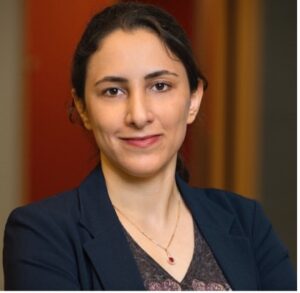
Dr. Mahsa Shoaran is currently an Assistant Professor in the Institutes of Electrical and Micro Engineering, and Neuro-X at EPFL and Director of the Integrated Neurotechnologies Laboratory. From 2017 to 2019, she was an Assistant Professor of ECE at Cornell University, NY, and a Postdoctoral Fellow at Caltech from 2015 to 2017. She received her PhD from EPFL in 2015 and her B.Sc. and M.Sc. from Sharif University of Technology. Dr. Shoaran is a recipient of the ERC Starting Grant (2021) and the Google AI Faculty Research Award in Machine Learning (2019). Her team received the IEEE SSCS–Brain Best Paper Award in 2022 for their work on NeuralTree. She was named a Rising Star in EECS by MIT in 2015. Her research interests include low-power IC design for neural interfaces, machine learning hardware, and neuromodulation therapies for neurological and psychiatric disorders. Dr. Shoaran serves on the Technical Program Committee of the IEEE ISSCC and CICC, and on the ISSCC SRP committee.
Track B: Machine Learning for Brain Discovery
Archana Venkataraman, Boston University, USA
Deep-Generative Hybrid Learning as a New Window into Brain Dysfunction
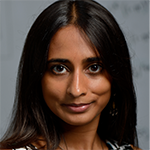 Dr. Venkataraman is an Associate Professor at Boston University. From 2016-2022, she was an Assistant Professor at Johns Hopkins University. Dr. Venkataraman directs the Neural Systems Analysis Laboratory and is a core faculty member of the Center for Brain Recovery at BU, and the Malone Center for Engineering in Healthcare and the Mathematical Institute for Data Science at JHU. Dr. Venkataraman’s research lies at the intersection of artificial intelligence, network modeling and clinical neuroscience. Her work has yielded novel insights in to debilitating neurological disorders, such as autism, schizophrenia, and epilepsy, with the long-term goal of improving patient care. Dr. Venkataraman completed her B.S., M.Eng. and Ph.D. in Electrical Engineering at MIT in 2006, 2007 and 2012, respectively. She is a recipient of the MIT Provost Presidential Fellowship, the Siebel Scholarship, the National Defense Science and Engineering Graduate Fellowship, the NIH Advanced Multimodal Neuroimaging Training Grant, the CHDI Grant on network models for Huntington’s Disease, numerous best paper awards, and the National Science Foundation CAREER award. Dr. Venkataraman was also named by MIT Technology Review as one of 35 Innovators Under 35 in 2019.
Dr. Venkataraman is an Associate Professor at Boston University. From 2016-2022, she was an Assistant Professor at Johns Hopkins University. Dr. Venkataraman directs the Neural Systems Analysis Laboratory and is a core faculty member of the Center for Brain Recovery at BU, and the Malone Center for Engineering in Healthcare and the Mathematical Institute for Data Science at JHU. Dr. Venkataraman’s research lies at the intersection of artificial intelligence, network modeling and clinical neuroscience. Her work has yielded novel insights in to debilitating neurological disorders, such as autism, schizophrenia, and epilepsy, with the long-term goal of improving patient care. Dr. Venkataraman completed her B.S., M.Eng. and Ph.D. in Electrical Engineering at MIT in 2006, 2007 and 2012, respectively. She is a recipient of the MIT Provost Presidential Fellowship, the Siebel Scholarship, the National Defense Science and Engineering Graduate Fellowship, the NIH Advanced Multimodal Neuroimaging Training Grant, the CHDI Grant on network models for Huntington’s Disease, numerous best paper awards, and the National Science Foundation CAREER award. Dr. Venkataraman was also named by MIT Technology Review as one of 35 Innovators Under 35 in 2019.
Richard Betzel, Indiana University, USA
Edge-centric Connectomics
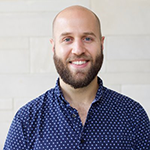 Dr. Richard Betzel earned his PhD from Indiana University, Bloomington in Psychological and Brain Sciences in 2015. Following a postdoc at the University of Pennsylvania, he founded the Brain Networks and Behavior Lab IUB in 2018. Dr. Betzel’s lab uses network science to better understand the organization and operation of biological neural networks. In particular, Dr. Betzel’s group is interested in better understanding the principles that govern the reconfiguration of brain networks at timescales ranging from the sub-second to that of the human lifespan. Dr. Betzel’s work is currently supported by the National Institutes of Health (NIBIB and NIA) and the National Science Foundation.
Dr. Richard Betzel earned his PhD from Indiana University, Bloomington in Psychological and Brain Sciences in 2015. Following a postdoc at the University of Pennsylvania, he founded the Brain Networks and Behavior Lab IUB in 2018. Dr. Betzel’s lab uses network science to better understand the organization and operation of biological neural networks. In particular, Dr. Betzel’s group is interested in better understanding the principles that govern the reconfiguration of brain networks at timescales ranging from the sub-second to that of the human lifespan. Dr. Betzel’s work is currently supported by the National Institutes of Health (NIBIB and NIA) and the National Science Foundation.
Dominique Duncan, University of Southern California, USA
Machine Learning Approaches to Study Post-Traumatic Epilepsy
 Dr. Duncan is an assistant professor of Neurology, Neuroscience, and Biomedical Engineering at the USC Stevens Neuroimaging and Informatics Institute in the Laboratory of Neuro Imaging (LONI) at the University of Southern California. Dr. Duncan’s background spans mathematics, engineering, and neuroscience. She received her PhD at Yale University in Electrical Engineering where she analyzed intracranial EEG data using nonlinear factor analysis to identify preseizure states of epilepsy patients. Dr. Duncan is funded through both the National Institutes of Health (NIH) and the National Science Foundation (NSF). She has built international, multidisciplinary collaborations and developed novel analytic tools to analyze multimodal data, including imaging and electrophysiology, particularly in the areas of traumatic brain injury, epilepsy, and COVID-19. By creating large-scale data repositories and linking them with analytic, visualization, and quality control tools for multimodal data, her work aims to encourage collaboration across multiple fields.
Dr. Duncan is an assistant professor of Neurology, Neuroscience, and Biomedical Engineering at the USC Stevens Neuroimaging and Informatics Institute in the Laboratory of Neuro Imaging (LONI) at the University of Southern California. Dr. Duncan’s background spans mathematics, engineering, and neuroscience. She received her PhD at Yale University in Electrical Engineering where she analyzed intracranial EEG data using nonlinear factor analysis to identify preseizure states of epilepsy patients. Dr. Duncan is funded through both the National Institutes of Health (NIH) and the National Science Foundation (NSF). She has built international, multidisciplinary collaborations and developed novel analytic tools to analyze multimodal data, including imaging and electrophysiology, particularly in the areas of traumatic brain injury, epilepsy, and COVID-19. By creating large-scale data repositories and linking them with analytic, visualization, and quality control tools for multimodal data, her work aims to encourage collaboration across multiple fields.
Behtash Babadi, University of Maryland, College Park, USA
Advances in Granger Causality Inference with Case Studies from Auditory Neuroscience
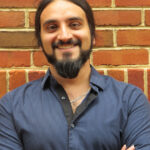 Dr. Behtash Babadi is an Associate Professor in the Department of Electrical & Computer Engineering and the Institute for Systems Research at the University of Maryland, College Park. He received the Ph.D. and M.Sc. degrees in Engineering Sciences from Harvard University in 2011 and 2008, respectively, and a B.Sc. degree in Electrical Engineering from Sharif University of Technology in 2006. From 2011 to 2014, he was a postdoctoral fellow at the Department of Brain and Cognitive Sciences at the Massachusetts Institute of Technology as well as at the Department of Anesthesia, Critical Care and Pain Medicine at Massachusetts General Hospital. He received an NSF CAREER Award in 2016. His research interests include statistical and adaptive signal processing, neural signal processing, and systems neuroscience.
Dr. Behtash Babadi is an Associate Professor in the Department of Electrical & Computer Engineering and the Institute for Systems Research at the University of Maryland, College Park. He received the Ph.D. and M.Sc. degrees in Engineering Sciences from Harvard University in 2011 and 2008, respectively, and a B.Sc. degree in Electrical Engineering from Sharif University of Technology in 2006. From 2011 to 2014, he was a postdoctoral fellow at the Department of Brain and Cognitive Sciences at the Massachusetts Institute of Technology as well as at the Department of Anesthesia, Critical Care and Pain Medicine at Massachusetts General Hospital. He received an NSF CAREER Award in 2016. His research interests include statistical and adaptive signal processing, neural signal processing, and systems neuroscience.
Track C: Clinical Applications and Impact
Lee E. Miller, Northwestern University, USA
In Pursuit of a Biomimetic iBCI for Dexterous Hand Use Following Spinal Cord Injury
 Dr. Miller is a Professor in the Departments of Neuroscience, Physical Medicine and Rehabilitation, and Biomedical Engineering at Northwestern University. He received the Ph.D. degree in Physiology from Northwestern University in 1989, then completed two years of postdoctoral training in the Department of Medical Physics, University of Nijmegen, The Netherlands. He was inducted into the American Institute for Medical and Biological Engineering in 2016 and was the president of the Society for the Neural Control of Movement from 2015–2023. Dr. Miller has had a career-long interest in the motor and sensory signals that are generated by single neurons in the brains of monkeys during arm and hand movement. His early work was devoted to studying these signals in the brainstem, cerebral cortex, and cerebellum, and their relation to muscle activity. In the past 20 years, Dr. Miller’s lab has increasingly focused on translational research, in particular, the development of intracortical brain computer interface technology to restore limb movement to paralyzed patients. His interdisciplinary approach has led to productive collaborations locally, nationally, and internationally. Most recently he has begun working with humans with spinal cord injury as part of the Cortical Bionics Consortium. He has authored over 130 manuscripts, book chapters, and review articles.
Dr. Miller is a Professor in the Departments of Neuroscience, Physical Medicine and Rehabilitation, and Biomedical Engineering at Northwestern University. He received the Ph.D. degree in Physiology from Northwestern University in 1989, then completed two years of postdoctoral training in the Department of Medical Physics, University of Nijmegen, The Netherlands. He was inducted into the American Institute for Medical and Biological Engineering in 2016 and was the president of the Society for the Neural Control of Movement from 2015–2023. Dr. Miller has had a career-long interest in the motor and sensory signals that are generated by single neurons in the brains of monkeys during arm and hand movement. His early work was devoted to studying these signals in the brainstem, cerebral cortex, and cerebellum, and their relation to muscle activity. In the past 20 years, Dr. Miller’s lab has increasingly focused on translational research, in particular, the development of intracortical brain computer interface technology to restore limb movement to paralyzed patients. His interdisciplinary approach has led to productive collaborations locally, nationally, and internationally. Most recently he has begun working with humans with spinal cord injury as part of the Cortical Bionics Consortium. He has authored over 130 manuscripts, book chapters, and review articles.
Aiko Thompson, Medical University of South Carolina, USA
Operant Conditioning of Motor Evoked Potentials to Enhance Neurorehabilitation after CNS Injuries
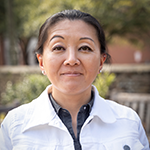 Dr. Thompson is a neuroscientist and an Associate Professor at the College of Health Professions at the Medical University of South Carolina. She did her Ph.D. with Dr. Richard Stein at the University of Alberta, Canada, and then did a postdoc training with Dr. Jonathan Wolpaw at the Wadsworth Center in Albany, NY. During her Ph.D., she was engaged in non-invasive human neurophysiology / plasticity research related to the use of FES (functional electrical stimulation) foot drop simulator; she also started investigating normal and abnormal spinal reflex modulation during walking and other dynamic movements in people with and without chronic CNS disorders. Then, during her postdoc, she developed the human H-reflex operant conditioning protocol. In 2007, she established her own lab at Helen Hayes Hospital in NY. Since then, she has been studying CNS plasticity in human sensorimotor control and how to guide the plasticity to help restore useful sensory and motor function in people after spinal cord injury and other CNS lesions. Her current research focuses on investigating functional roles of spinal reflexes and evaluating the CNS plasticity associated with operant conditioning of EMG evoked responses (e.g., spinal reflexes and motor evoked potential to transcranial magnetic stimulation) in people with SCI and other CNS lesions. Her ongoing research is funded by NIH, US Department of Defense, South Carolina SCI funds, and private endorsements.
Dr. Thompson is a neuroscientist and an Associate Professor at the College of Health Professions at the Medical University of South Carolina. She did her Ph.D. with Dr. Richard Stein at the University of Alberta, Canada, and then did a postdoc training with Dr. Jonathan Wolpaw at the Wadsworth Center in Albany, NY. During her Ph.D., she was engaged in non-invasive human neurophysiology / plasticity research related to the use of FES (functional electrical stimulation) foot drop simulator; she also started investigating normal and abnormal spinal reflex modulation during walking and other dynamic movements in people with and without chronic CNS disorders. Then, during her postdoc, she developed the human H-reflex operant conditioning protocol. In 2007, she established her own lab at Helen Hayes Hospital in NY. Since then, she has been studying CNS plasticity in human sensorimotor control and how to guide the plasticity to help restore useful sensory and motor function in people after spinal cord injury and other CNS lesions. Her current research focuses on investigating functional roles of spinal reflexes and evaluating the CNS plasticity associated with operant conditioning of EMG evoked responses (e.g., spinal reflexes and motor evoked potential to transcranial magnetic stimulation) in people with SCI and other CNS lesions. Her ongoing research is funded by NIH, US Department of Defense, South Carolina SCI funds, and private endorsements.
Jennifer Collinger, University of Pittsburgh, USA
Intracortical Brain-computer Interfaces for Computer Access at Home
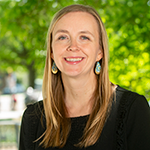 Dr. Collinger is an Associate Professor at the Department of Physical Medicine and Rehabilitation at the University of Pittsburgh, Rehab Neural Engineering Labs, with secondary appointments at the Department of Bioengineering at the University of Pittsburgh and the Department of Biomedical Engineering at Carnegie Mellon University. Her research interests are related to the use of neuroprosthetics to restore function for individuals with upper limb paralysis or loss, including the development of intracortical brain-computer interface technology for individuals with tetraplegia. Her work also includes non-invasive imaging for measuring neuroplasticity after spinal cord injury or amputation.
Dr. Collinger is an Associate Professor at the Department of Physical Medicine and Rehabilitation at the University of Pittsburgh, Rehab Neural Engineering Labs, with secondary appointments at the Department of Bioengineering at the University of Pittsburgh and the Department of Biomedical Engineering at Carnegie Mellon University. Her research interests are related to the use of neuroprosthetics to restore function for individuals with upper limb paralysis or loss, including the development of intracortical brain-computer interface technology for individuals with tetraplegia. Her work also includes non-invasive imaging for measuring neuroplasticity after spinal cord injury or amputation.
Monica A. Perez, Northwestern University, USA
 Dr. Perez is the Scientific Chair of the Arms + Hands Lab at the Shirley Ryan AbilityLab, a Professor in the Department of Physical Medicine and Rehabilitation at Northwestern University, and a Research Scientist at the Edward Jr. Hines VA Hospital. She has studied neural mechanisms contributing to the control of voluntary movement in healthy humans and in people with spinal cord injuries for over 15 years. Her research aims to understand how the brain and spinal cord contribute to the control of movement with the ultimate goal of using this mechanistic information to develop more effective rehabilitation therapies for people with spinal cord injuries. This theme is mainly investigated from a neurophysiological point of view, using a combination of transcranial magnetic stimulation, magnetic resonance imaging, electrical stimulation, and behavioral techniques. She is the Editor in Chief for Topics in Spinal Cord Injury Rehabilitation and Associate Editor for the Journal of Neurophysiology. Dr. Perez ongoing research is funded by the National Institutes of Health (NINDS), Department of Veterans Affairs, Walkabout Foundation, Shirley Ryan AbilityLab, and private endorsements.
Dr. Perez is the Scientific Chair of the Arms + Hands Lab at the Shirley Ryan AbilityLab, a Professor in the Department of Physical Medicine and Rehabilitation at Northwestern University, and a Research Scientist at the Edward Jr. Hines VA Hospital. She has studied neural mechanisms contributing to the control of voluntary movement in healthy humans and in people with spinal cord injuries for over 15 years. Her research aims to understand how the brain and spinal cord contribute to the control of movement with the ultimate goal of using this mechanistic information to develop more effective rehabilitation therapies for people with spinal cord injuries. This theme is mainly investigated from a neurophysiological point of view, using a combination of transcranial magnetic stimulation, magnetic resonance imaging, electrical stimulation, and behavioral techniques. She is the Editor in Chief for Topics in Spinal Cord Injury Rehabilitation and Associate Editor for the Journal of Neurophysiology. Dr. Perez ongoing research is funded by the National Institutes of Health (NINDS), Department of Veterans Affairs, Walkabout Foundation, Shirley Ryan AbilityLab, and private endorsements.
IEEE Brain Discovery and Neurotechnology Workshop: Call for Posters
We invite participants of the 2023 IEEE Brain Discovery and Neurotechnology Workshop to contribute interactive poster presentations. Posters offer the opportunity to present your recent research or research work in progress to experts and receive valuable feedback. The session will encourage networking and discussion among peers and might also start new collaborations. Poster boards will be provided to all presenters. Use this form to submit a 1-page abstract describing your poster along with one image or graphic for consideration in the program.
Submissions with students as presenting authors will be considered for Best Poster Awards. Limited travel awards are also available to provide support for presenting students to attend the workshop.
Submissions are now closed.


